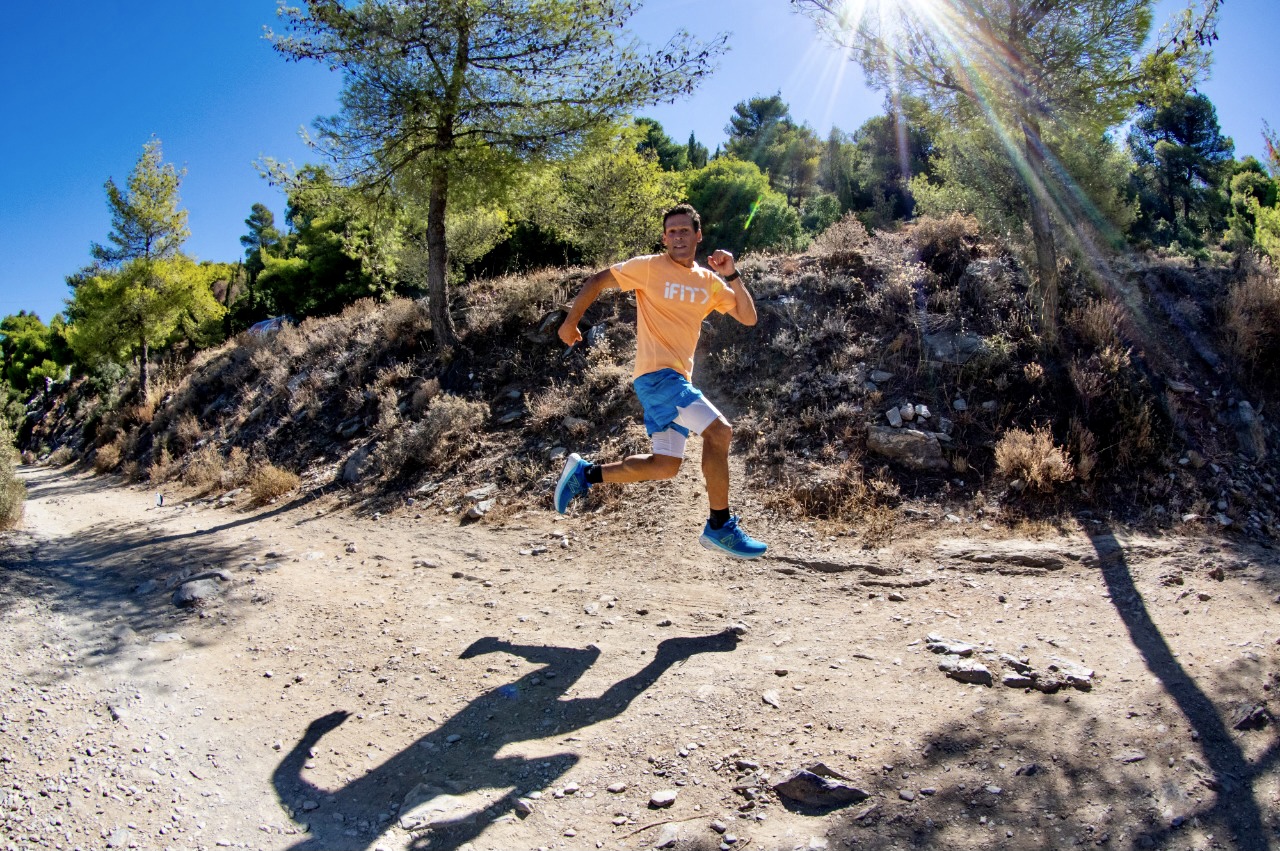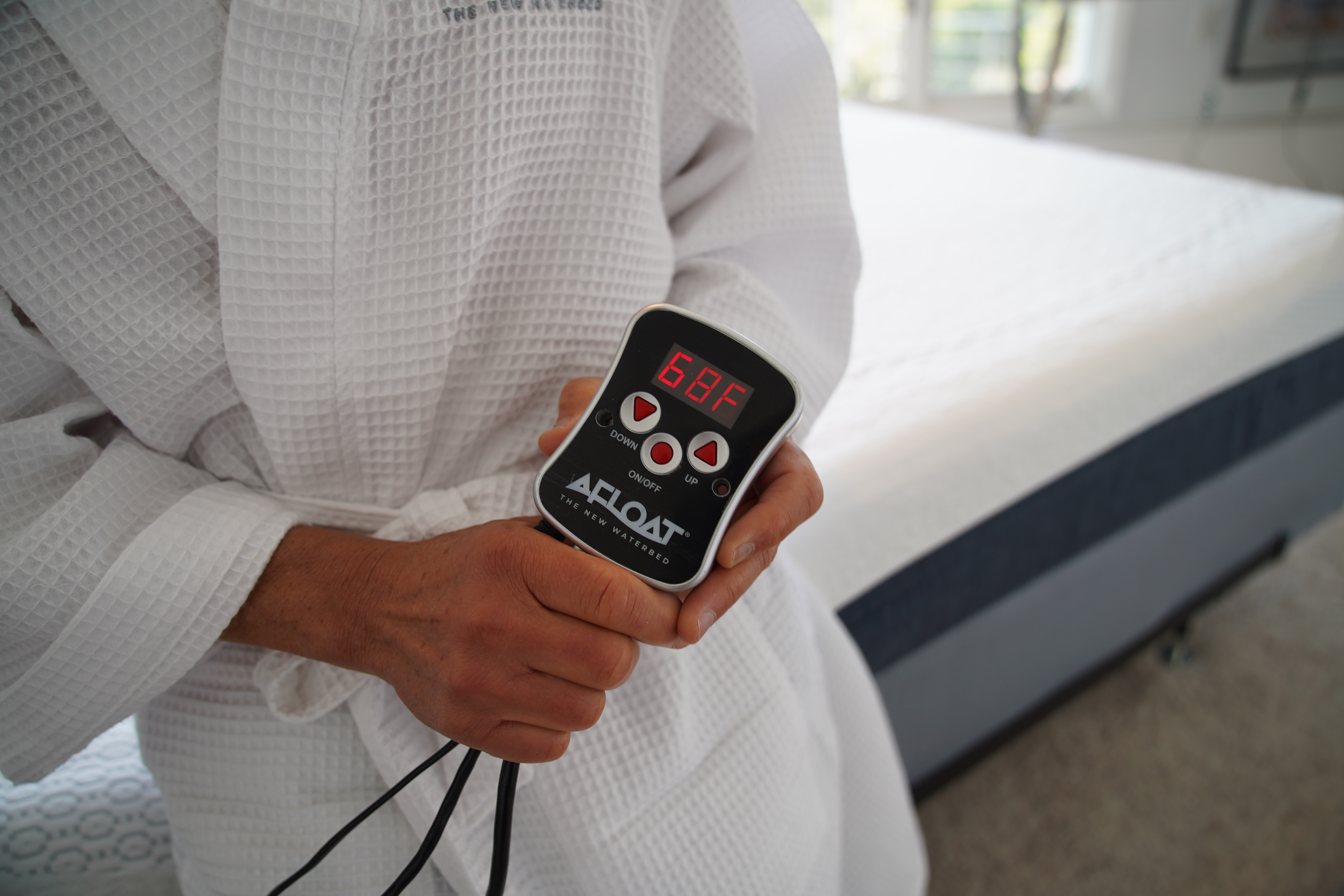Recovery and Discovery
Posted by Dean Karnazes is CEO (Chief Exercise Officer) of Afloat. on Nov 12th 2022
Running a hundred mile footrace is challenging; recovering from a hundred mile footrace can be equally testing. When the human body gets pushed to such extremes it makes increasingly noticeable demands for repair and recovery. Muscle spasms are an early indication of the body’s growing weariness. Other obvious signs include tenderness walking downhill, the intense buildup of internal body heat, gastrointestinal distress and nausea, lightheadedness. If you can muster the fortitude to continue onward and reach the finish line, you typically arrive in a fairly wrecked state. There’s simply no easy way to run a hundred miles, it’s always an epic struggle.
Then comes the hard part. Recovery.The body’s ability to recover is what gives us our resilience, our ability to keep going. Sometimes recovery is surprisingly swift—a day or two—other times it takes weeks or months to feel normal again. After three decades of running ultramarathons I’ve learned that no single element is more important for recovery than a good night’s rest. Quality sleep is paramount, the apex of the recovery pyramid.

A couple days ago I ran the Rio Del Largo 100 Mile Trail Race in Northern California. I signed up on a whim as some previous travel plans unraveled. It might sound crazy signing up for a hundred mile footrace on a whim, but that’s the kind of baseline fitness I strive to maintain.
The first fifty miles went reasonably well, but as the hours and the miles dragged on things turned increasingly ugly. A storm moved into the area and it rained and drizzled much of the night. I ran mostly alone, wet and cold in the wilderness, for twelve hours. By dawn the next morning I was stiff, waterlogged, sleep deprived and babbling nonsensical affirmations. “You are a strong rubber ducky. Keep waddling!” Salmon leap upstream, I hobbled.
Eventually I crossed the finish line and a medal was put around my neck; I shuffled over to my car, got in, and drove two and a half hours home (there should be laws against these sorts of things). But all I wanted was to crawl into my own bed. And that’s because I sleep on an Afloat Waterbed. You may think that after spending most the night nearly hypothermic I’d want to sleep in heated blankets, but that would only make things worse. My muscles were generating so much working heat they needed to cool down and reduce the build-up of inflammation. My Afloat waterbed offers precise temperature control so I dialed down the thermostat to allow the coolness to aid recovery. As noted in the journal Current Opinion in Physiology, keeping body temperatures within a narrow range at night allows the brain to release the chemicals that induce a deeper sleep. Conversely, a lack of adequate body cooling at night can interfere with REM sleep, which is needed for the body to complete its nightly repair and restoration work.

I’ve distilled it down to a simple formula: good sleep = good recovery (I’ve never been a math whiz, needless to say). But that simple equation is something anyone can understand.
Just how, exactly, am I faring a couple days after running a hundred miles? Honestly, it’s not all that bad. Obviously after three decades of running marathons and ultramarathons there is some wear and tear on the chassis, but I’m still moving forward. The dreaded DOMS (delayed onset muscle soreness) is apparent, though not debilitating. And I attribute much of the speedy recovery to the coolness of my waterbed and the reduction of so-called muscle fever.
There are other benefits afforded by sleeping on water, too. One is that water cannot be compressed, so there are no pressure points sleeping on my Afloat. Other mattress companies, even the best known memory foam ones claim they reduce pressure points, but they’re made of foam, which can be compressed. Water cannot, simple as that.
So there you have my secret for recovery and restoration after a grueling race. Of course, you don’t have to be an ultramarathoner to realize the benefits of sleeping on an Afloat waterbed. Anyone—whether you run great distances, modest distances or are just starting out—can see improvements from sleeping on water.
And now is a great time to get an Afloat waterbed with my unique code: Restup2023 -- take up to 20% off your purchase and start sleeping and recovering better tonight. Visit our comparison page to learn which bed is right for you.
Tomorrow is time for a run, but this evening belongs to you. Night, night…
-- -- -- -- --
Dean Karnazes is CEO (Chief Exercise Officer) of Afloat.




 (844) 423-5628
(844) 423-5628 service@hallflotation.com
service@hallflotation.com